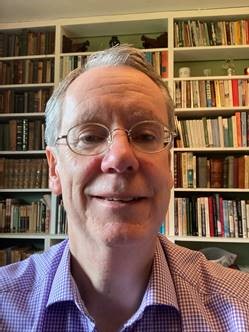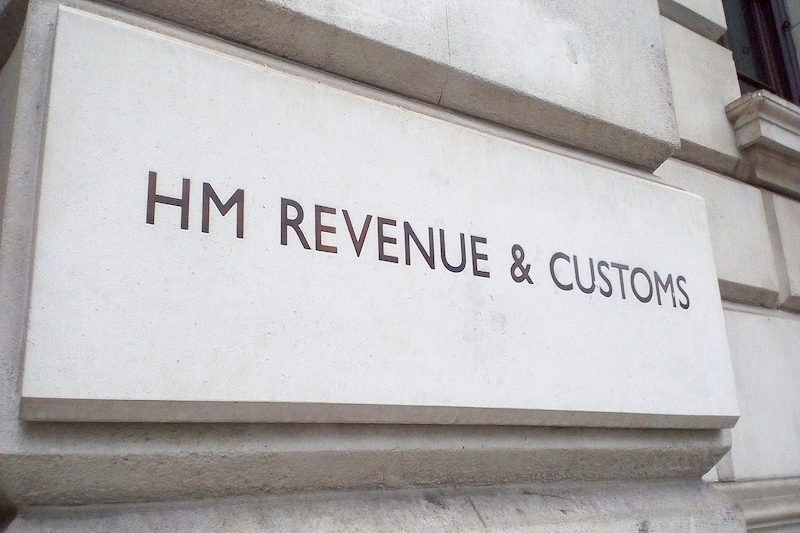Open Banking Expo’s head of content Ellie Duncan (ED) speaks to Nick Down (ND), head of payments at HMRC, about implementing Open Banking payments, the main challenge in doing so, and what winning the Open Banking Expo Pioneer Award means to him.
ED: What is your role at HMRC?
ND: I’m HMRC’s head of payments and it’s a business within a business at HMRC. We took the decision to bring together all aspects of payments – everything from the strategy, owning the payment processes, and delivering projects/programs, to the operational business.
I joined HMRC when I was about 27, after a vaguely misspent youth in the West Country of England as a chess player. It was, at that time, called the Inland Revenue. I found it very interesting, and such a friendly bunch of people, that I’ve happily been there ever since.
ED: One of the reasons you were nominated for, and ultimately won, this award is for your work implementing Open Banking into such a huge government organisation, HMRC. Can you start by explaining the opportunity you saw here? Did HMRC have a legacy payments infrastructure?
ND: HMRC includes the Inland Revenue, Customs and Excise, the contributions agency, they all had their own IT systems and beyond that, historically, each tax regime was designed as an entity. So it was framed by legislation based on policy and consultation and all aspects of it, including payments, were then developed. That meant that, for a customer, if you’re paying HMRC you had all sorts of different rules to negotiate, and we’ve been changing that and putting in place consistent payment methods for all taxes.
Open Banking was on the radar. It clearly had a huge amount of potential – it was attracting interest, and investment. The reason we liked it was it made things simpler for the customer, it meant they could reuse data they trusted rather than having to key that data in again.

Nick Down, head of payments at HMRC
Every year we had to intervene and correct more than 2 million payments where something has gone wrong. If we don’t, they won’t get to the right customer, or the right tax, or the right period of time. It meant, as an investment, Open Banking would pay for itself quite quickly, so we weren’t going to be taking risks with public money. However creative and innovative we might want to be, the one thing we can’t do is gamble with public money.
So Open Banking brought all those jigsaw pieces together rather nicely. We thought it was a hugely compelling thing to do.
ED: Over what timeframe did you go from identifying Open Banking as a solution to implementing it?
ND: We created a small proof of concept to check that there weren’t going to be any nasty, behind-the-scenes issues. Then spent a bit of time designing the procurement so we would get a good external partner in this. Having done that, the implementation was incredibly fast, it was about 11 weeks.
ED: Did you face any barriers internally or externally to implementing Open Banking payments?
ND: Not really. People quickly saw why it was a good idea. It wasn’t was a big or expensive IT project; if it had been, people would quite rightly have taken a great deal more convincing. It was clear it was doable and it had a fairly quick payback.
The support we got from the external community was absolutely brilliant. Organisations like the Open Banking Implementation Entity, Pay.UK and the whole Open Banking and Open Finance community have been really encouraging.
I’ve gradually come to realise just what an impact it’s had. We think of ourselves as being a large organisation when it comes to payment, but we hadn’t expected to become the anchor use case for Open Banking payments, and if that’s having a wider positive effect then that’s great. Because we should be doing things in a way that helps the UK economy.
ED: How is Open Banking being used by HMRC – can you talk through the main projects?
ND: At the moment we’ve focused on trying to make payments consistently and easily available to customers. We went live in March 2021 with Self Assessment because that’s one of the largest areas of payments. But, throughout the year, we’ve been rolling it out to more and more taxes, and it now covers pretty much everything.
The vast majority of taxes you can now pay for using Open Banking payments, and you can do that using a mobile phone on the HMRC app. We’d like to explore variable recurring payments (VRPs). So we are trying to expand our use of Open Banking consistently, rather than jumping around too much.
ED: Since March 2021, what has been the uptake of Open Banking?
ND: We’ve had around 2.2 million Open Banking payments, worth about £5.5 billion so far. That’s pretty substantial. We haven’t gone out with a massive advertising campaign around this, it’s simply been through people’s experience and through it being picked up around the financial community, so that’s pleasing – it’s not artificially-generated demand.
I suspect what we’ll see is a more gradual increase for a while then, as more and more people and businesses find Open Banking is an effective and sensible way of making payments in their daily lives, that rate will steepen again.
ED: What were the main challenges in adopting Open Banking at HMRC?
ND: We had to test to make sure it was compatible with our systems and to make sure it was secure. The big pitfall we avoided was building in complexity. If we had tried to do something different for every tax, you and I would not be having this discussion, I think. Once you accept you’re working with something that is a successful medium – Open Banking payments – don’t try to break it and don’t try to customise the life out of it, it works really well.
ED: What advice do you have for other government institutions, both in the UK and elsewhere, considering embracing Open Banking?
ND: I would certainly encourage them to explore it. They’ll need to look at their strategies and their customers’ expectations. If it looks like a good fit, and I think for most organisations it will be, then try it out, make some enquiries in the Open Banking community. If anyone wants to drop me a line, I’d be happy to talk to them.
ED: Finally, how do you feel about winning the Open Banking Pioneer Award, which is judged by your peers?
First and foremost, I’m genuinely astonished about it – delighted as well. The real pioneers here are the people in HMRC’s payments strategy team. They believed in it, they’re incredibly creative and energetic, and I’m very proud of them.
It’s also really nice seeing UK Government being recognised for doing something pioneering. Normally, the Government creates the conditions for, in this case, Open Banking’s development through regulation. But we also want HMRC to be part of it and actually implement things, develop better services, remove friction from customers’ lives. We do want to work with both public and private sector in doing that. If this is recognition of this, and also a prompt to us to keep doing it, and encouragement to others to keep doing it, then that’s great.










